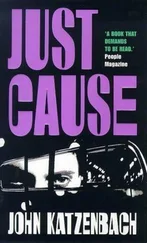But this observation did not even begin to color in the portrait he knew he would have to create in order to guess that man’s name.
“What do you know about psychopaths?” he asked himself, as he walked up the steps to the brownstone building that housed his home office and four other apartments. Not much, he answered quietly to himself. What he knew about were the troubles and neuroses of the mildly to significantly crippled. He knew about the lies well-to-do people told themselves to justify their behavior. He didn’t think he knew much about someone who would create an entire world of lies in order to bring about his death. Ricky understood that this was uncharted territory for him.
In an instant, the satisfaction Ricky had felt outmaneuvering Rumplestiltskin once, fled. He reminded himself coldly: Remember what’s at stake.
He saw that the mail had been delivered, and he opened his box. One long, thin envelope bore an official seal in the upper left-hand corner from the Transit Authority of the City of New York. He opened this first.
There was a small piece of paper clipped to a larger photocopied sheet. He read the small letter first.
Dear Dr. Starks:
Our investigation uncovered the enclosed among Mr. Zimmerman’s personal effects. Because it mentions you, and seems to comment on your treatment, I send it along. Our file on this death, incidentally, is now closed.
Sincerely,
Detective J. Riggins
Ricky flipped the cover letter back and read the photocopy. It was brief, typed, and filled him with a distant dread.
To whom it may concern:
I talk and talk, but never get better. No one helps me. No one listens to the real me. I have made arrangements for my mother. These can be found along with will, insurance papers, and other documents in my desk at work. Apologies to all involved, except Dr. Starks. Goodbye to the rest.
Roger Zimmerman
Even the signature had been typed. Ricky stared at the suicide note, feeling his emotions simply drain through him.
Zimmerman’s note, Ricky thought, could not be real.
Internally, he remained adamant: Zimmerman was no more likely to take his own life than Ricky was. He showed no signs of suicidal ideation, no inclinations to self-destruction, no propensity for self-violence. Zimmerman was neurotic and stubborn and only beginning to understand analytic insight; he was a man who still had to be pushed into doing anything, just as Ricky believed he had to have been pushed in front of that subway train. But Ricky was just starting to have trouble discerning what was real and what wasn’t. Even with the detective’s letter in front of him, after his visit to the subway station and the police office, he still was having difficulty accepting the reality of Zimmerman’s death. It remained fixed somewhere in the surreal. He looked down at the suicide letter and realized he was the only person named. He took note, also, that it hadn’t been signed by hand. Instead, the person who wrote the note had typed Zimmerman’s name. Or, Zimmerman had typed his name if he had indeed written the note.
Ricky’s head spun.
Any elation he felt at outmaneuvering the attorney that morning dissipated, replaced with a queasiness bordering on nausea that seemed to start in his stomach, but which he guessed was really psychosomatic. He rode the elevator to his home with the sensation of weight dragging at his heels, resting on his shoulders. The first threads of self-pity crept into his heart, the Why me? question dogging his slow steps. By the time he reached his office, he felt exhausted.
He threw himself down behind his desk and seized the letter from the Psychoanalytic Society. He mentally crossed off the lawyer’s name, though he wasn’t silly enough to think that he had heard the last from Merlin, whoever he was. The name of the Boston-based therapist that his alleged victim was seeing was included in the letter, and Ricky understood that was undoubtedly meant to be his next call. For a moment, he wanted to ignore the name, not do what he was clearly supposed to do, but then, equally, he realized that failing to vigorously protest his innocence would be considered the act of a guilty man, so, even if it was anticipated and equally useless, he had to make that call.
Still feeling sick to his stomach, Ricky reached out and dialed the therapist’s number. It rang once, then, as he’d half expected, he got an answering machine: “This is Doctor Martin Soloman. I cannot take your call at this moment. Please leave your name and number and a brief message, and I will get back to you promptly.” At least, Ricky thought, he hasn’t left for vacation yet.
“Doctor Soloman,” Ricky said briskly, an actor trying to fill his voice with an element of outrage and indignation, “this is Doctor Frederick Starks in Manhattan. I have been accused by a patient of yours of serious misconduct. I would like to inform you that these allegations are totally false. They are fantasy, without any basis in substance or reality. Thank you.”
Then he hung up. The solidity of his message restored some of his spirits. He looked at his watch. Five minutes, he thought. Ten at the most, before he calls back.
About this he was correct. At the seven-minute mark, the telephone rang.
He answered with a solid, deep, “Doctor Starks speaking.”
The man at the other end of the line seemed to inhale sharply before saying, “Doctor, this is Martin Soloman. I received your brief message and thought it wise if I got right back to you.”
Ricky waited for a moment or two, filling the line with silence, before continuing, “Who is your patient, who has accused me of this reprehensible behavior?”
He was greeted with an equal space of quiet, before Soloman said, “I don’t know that I’m at liberty yet to divulge her name. She has told me that when investigators from the proper medical ethics authorities contact this office, she will make herself available. Merely voicing the complaint to the New York Psychoanalytic Society was an important first step in her recovery. She needs to proceed cautiously. But this seems incredible to me, doctor. Surely you know who your patients were such a short time ago? And claims such as hers, with the detail she has provided me over the past six months, certainly lend credence to what she’s said.”
“Detail?” Ricky asked. “What sort of detail?”
The doctor hesitated. “Well, I don’t know how much-”
“Don’t be ridiculous. I don’t believe for a second that this person exists,” Ricky interrupted sharply.
“I can assure you she is completely real. And her pain is substantial,” the therapist said, mimicking what Merlin the lawyer had pronounced earlier that day. “Frankly, doctor, I find your denials less than persuasive.”
“Then what details?”
Soloman hesitated before saying, “She has described you, physically and intimately. She has described your office. She can imitate your voice, which, I might say now, seems an uncannily accurate imitation…”
“Impossible,” Ricky blurted.
Doctor Soloman paused again, then asked, “Tell me, doctor, on the wall in your office next to the portrait of Freud, is there a small blue and yellow woodcut of a Cape Cod sunset?”
Ricky almost choked. Of the few pieces of art remaining in the monastic world of his office and apartment, that was one. It had been a present to him from his wife on their fifteenth wedding anniversary, and it was one of the few items that survived his purge of her presence after she succumbed to cancer.
Soloman continued, “It’s there isn’t it? My patient said that she would focus on that particular piece of art, trying to will herself into the picture, while you were abusing her sexually. Like an out-of-body experience. I’ve known other victims of sex crimes to do the same, to imagine themselves someplace other than reality. It’s not an uncommon defense mechanism.”
Читать дальше












